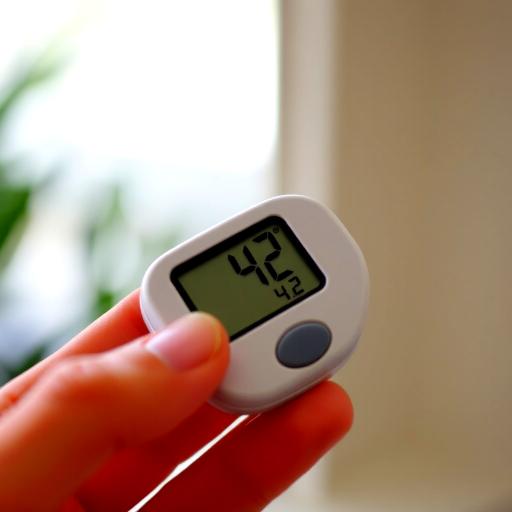Overnight Dips: Understanding Nocturnal Hypoglycemia and Serum Glucose Levels
The Unseen Drop in Blood Sugar During Sleep

Nocturnal hypoglycemia occurs when blood sugar, or serum glucose, levels drop significantly during sleep. This drop can be attributed to several factors, including certain medications, dietary habits, and physical activities. For instance, individuals with diabetes who take insulin or other glucose-lowering medications may experience nocturnal hypoglycemia if their dosage is too high or if they skip meals. Similarly, strenuous exercise or alcohol consumption can also cause blood sugar levels to plummet, leading to hypoglycemia.
While nocturnal hypoglycemia might not seem alarming, it can pose serious health risks if left unchecked. Symptoms can range from mild, such as sweating and nightmares, to severe, including seizures or loss of consciousness. Moreover, repeated episodes of nocturnal hypoglycemia can disrupt sleep patterns, leading to fatigue, impaired cognitive function, and decreased quality of life. In extreme cases, nocturnal hypoglycemia can result in hypoglycemic coma, a life-threatening condition.
Preventing nocturnal hypoglycemia largely involves managing blood sugar levels effectively. This can be achieved through a combination of balanced nutrition, regular physical activity, and proper medication management. Consuming a diet rich in whole foods, particularly complex carbohydrates and proteins, can help maintain steady blood sugar levels. These foods are digested slowly, providing a steady release of glucose into the bloodstream and preventing sudden drops in blood sugar.
Physical activity plays a role in blood sugar management. Regular exercise helps improve insulin sensitivity, allowing the body to use glucose more efficiently. However, it's important to note that intense workouts can cause blood sugar levels to drop. Therefore, it's advisable to have a small, balanced snack before exercising to prevent hypoglycemia.
Medication management is also key in preventing nocturnal hypoglycemia. Individuals taking glucose-lowering medications should work closely with their healthcare provider to determine the appropriate dosage and timing. Regular monitoring of blood sugar levels, especially before bedtime, can help detect and prevent nocturnal hypoglycemia.
While nocturnal hypoglycemia can be a concern for individuals with diabetes, it's important to note that it can also occur in people without the condition. Factors such as fasting, excessive alcohol consumption, and certain health conditions can cause blood sugar levels to drop during sleep. Therefore, maintaining a balanced diet and healthy lifestyle is crucial for everyone, not just those with diabetes.
To recap, nocturnal hypoglycemia, characterized by a significant drop in blood sugar levels during sleep, can pose serious health risks if not properly managed. Prevention strategies include maintaining a balanced diet rich in whole foods, engaging in regular physical activity, and managing medication effectively. Regular monitoring of blood sugar levels is also crucial in detecting and preventing this condition. By understanding and addressing nocturnal hypoglycemia, we can take a significant step towards improved health and well-being.
Updated: August 13, 2025 10:19
Category: Wellness
Keywords: blood sugar hypoglicemia
References
"Nocturnal hypoglycemia is underdiagnosed in older people with insulin-treated type 2 diabetes: The HYPOAGE observational study". 25 March 2023. Anne-Sophie Boureau MD, PhD, Béatrice Guyomarch MSc, Pierre Gourdy MD, PhD, Ingrid Allix MD, Cédric Annweiler MD, PhD, Nathalie Cervantes MD, Guillaume Chapelet MD, et al. https://agsjournals.onlinelibrary.wiley.com/doi/full/10.1111/jgs.18341
"Nocturnal Hypoglycemia: Causes, Symptoms, and Prevention" - Medical News Today, May 2021: https://www.medicalnewstoday.com/articles/nocturnal-hypoglycemia
Comments
You must log in to post a comment.